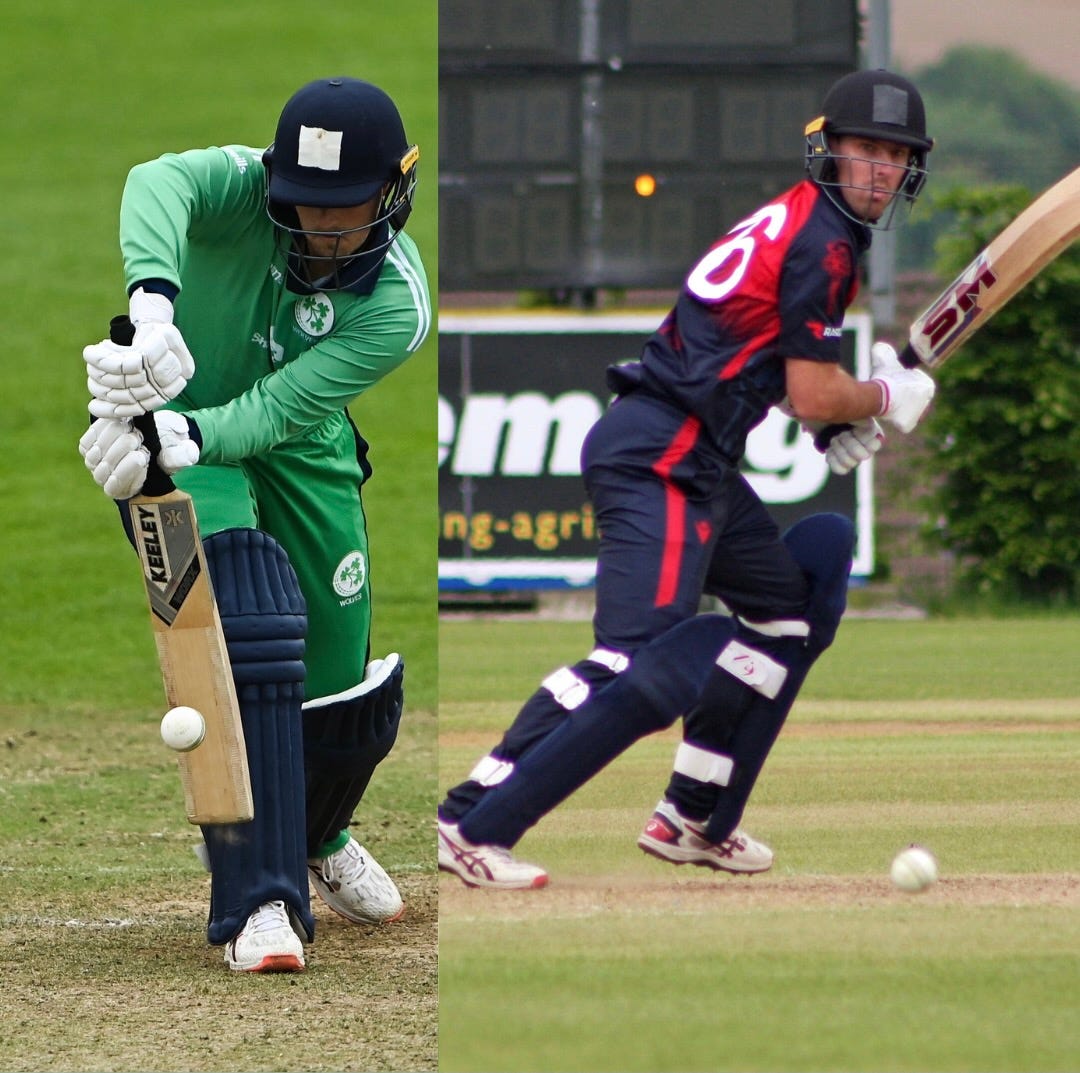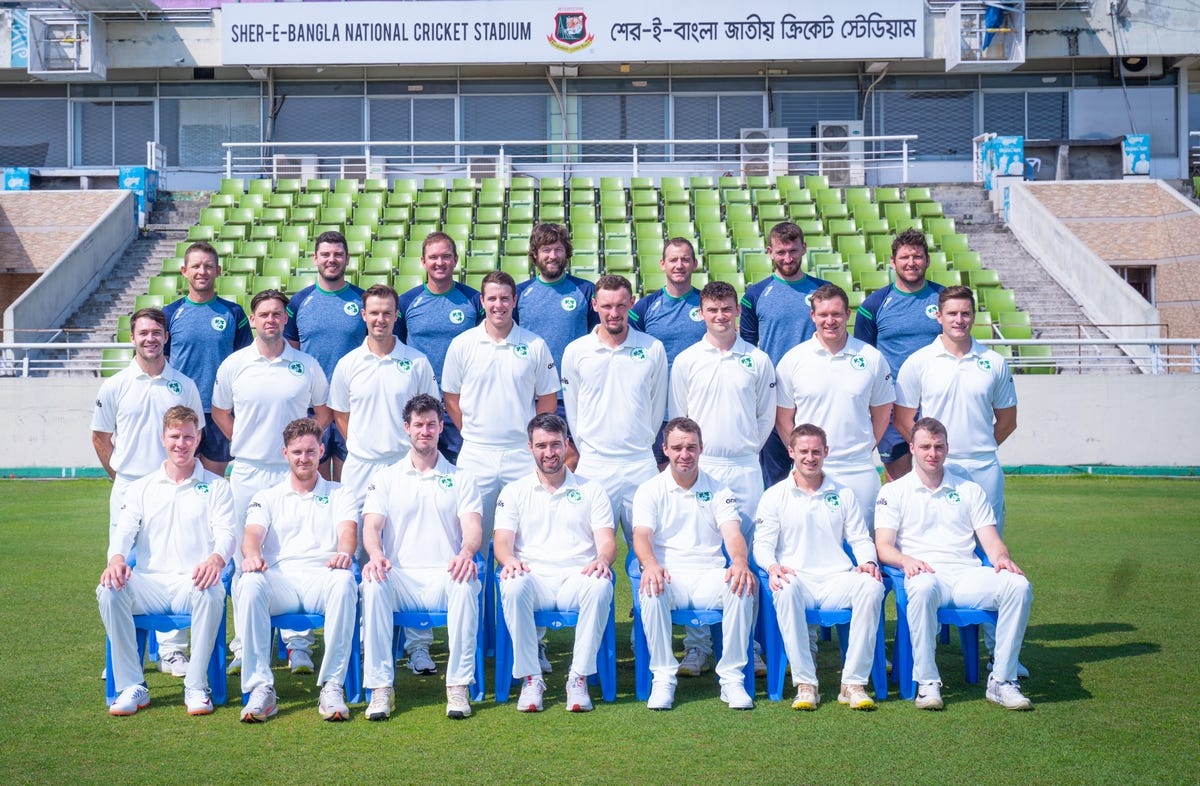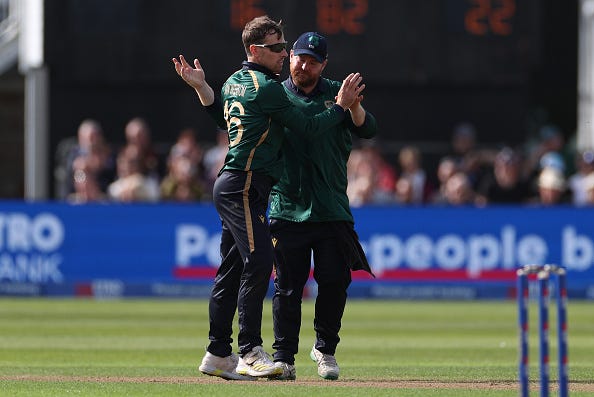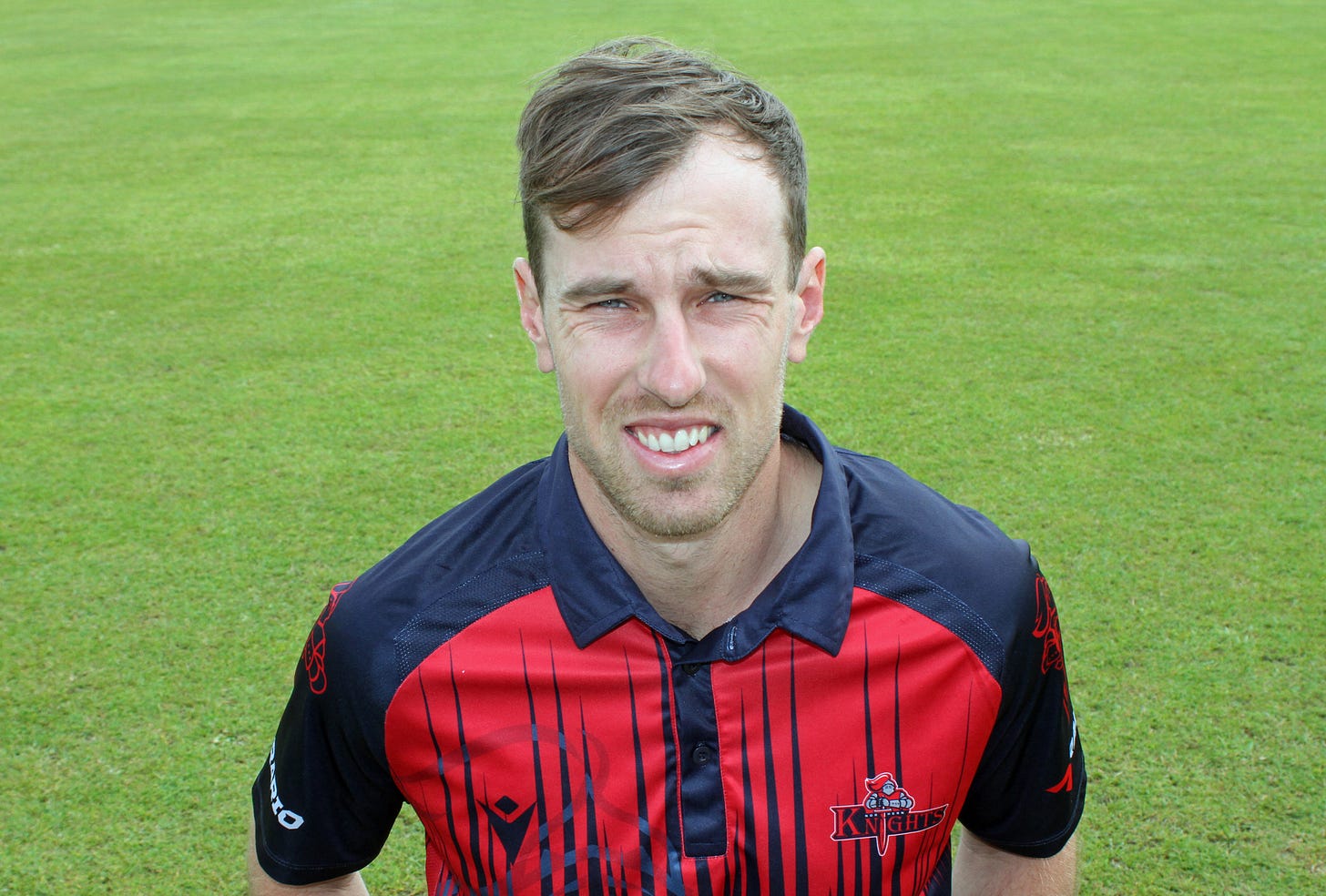Why are Ireland losing Test cricketers?
Murray Commins and Theo van Woerkom both turned down central contracts and have moved back to their native countries

When Ireland recently announced their list of central contracts, the joke from colleagues across the water was that they had done an England on it.
England revealed their contracted players during last year’s ODI World Cup. The timing risked significant public distraction from the cricket. When David Willey, who was in that World Cup squad, wasn’t offered a deal, attention honed in on his plight.
Prior to the ongoing T20 World Cup, Ireland did something similar, without directly copying their neighbours. 24 hours out from their opening game against India, the list of contracted players was published.
This came significantly later than expected after contract negotiations were elongated by Cricket Ireland’s ever changing funding picture as players sought a pay rise. The men’s squad then rejected offers which were made prior to the home series against Pakistan as a revenue sharing agreement was being thrashed out.
Once the differences were overcome, unlike England, the contract news passed without a whimper in the limited Irish cricket press. This is partly due to negligence - myself and a colleague joked in Florida recently that we weren’t as hawkish as we needed to be.
The missing fanfare was also due to the lack of surprise. Unlike England, no Irish player in the current World Cup squad missed out on a deal. Nothing to see here.
If only.
Prior to the World Cup, speculation surrounding the status of two Irish Test cricketers was rife. As the domestic season started, there was no sign of Murray Commins or Theo van Woerkom at interpro and club level. Their names were subsequently not on Ireland’s list of contracts. They have both moved back to their native countries, South Africa and New Zealand, having rejected contract offers made to them.

Why have the 19th and 28th men to play Test cricket for Ireland ended their international careers? Head coach Heinrich Malan was asked about this during his final press conference of the recent T20 World Cup.
“That's their decision obviously to not accept their contracts,” he said. “[It] obviously took a little bit longer to get to the point where people had the relevant information in front of them to make those decisions and, unfortunately, they decided not to take them.”
This was the first public explanation from anyone involved since the announcement. Malan and Cricket Ireland placed the ball firmly in the players’ court; they rejected the offers.
But why?
Van Woerkom, born in Christchurch, New Zealand, qualified for Ireland through grandparents from Donegal and Limerick. He moved to Belfast to play for CIYMS and, subsequently, the Northern Knights. He was first called up for the T20 World Cup qualifiers in Scotland last summer as an injury replacement for Gareth Delany. Many criticised the decision to pick him ‘fresh off the boat’ over one of Ireland’s younger, home-grown battery of spinners. At the time, the selection was a case of breaking the glass in case of an emergency. Van Woerkom would only play if Ben White got injured.
After a poor 50-over World Cup qualifier in Zimbabwe, Ireland were extra cautious heading into the T20s. They didn’t want to take the risk of blooding a youngster like Gavin Hoey or Matthew Humphreys in such a critical series. Van Woerkom, aged 29 at the time, was a safe, experienced option given his volume of First Class cricket back in New Zealand. In any case, White stayed fit in Scotland and van Woerkom did not play.
Later that summer, the thinking around his place in the squad changed. Van Woerkom was no longer an emergency option as he kept his spot for the visit of India. He was due to debut in the third and final game, only for rain to intervene.
Instead, van Woerkom debuted in the ODI series against England, coming into another rain-affected game in Bristol. Despite struggling after being given the hospital pass of bowling left-arm spin to a rampant, left-handed Ben Duckett, he kept his place for the Afghanistan tour earlier this year. He featured in the Test match, taking 1-55 across the two innings.
Having earned six caps in a year, van Woerkom expected a contract. He previously earned only match fees and per diems. He was on a rolling, monthly arrangement for the Afghanistan series. This, though, came as Ireland’s 2024 contracts were delayed. Faced with ICC funding uncertainty, Cricket Ireland could not make concrete offers until late spring/early summer. Van Woerkom knew a contract would be his but not the exact salary. He opted to stay in New Zealand until the Irish Cricketers’ Association, the players union, successfully concluded their negotiations with Cricket Ireland.
When contacted prior to the Pakistan series, van Woerkom said it was intention to return once new deals were collectively agreed. When this happened roughly a week later, the salary band and total figure offered to him was not sufficient to bring van Woerkom back into the Irish fold. He had previously been named in a squad to take on West Indies U23 in a warm-up for the Zimbabwe Test in July.
“The decision not to return was a purely family based decision,” said van Woerkom in a statement. “The contract offer was not at a level to make the move permanent given that I have a young family in New Zealand.
“I've loved my time in the Irish environment and will be watching their progress with interest. The players, staff and those at the Northern Cricket Union have made my experience a memorable one and I can't thank them enough for everything they've done for me.”
As for Commins, his decision to step away from Ireland contention came earlier in the winter. The Cape Town native was supposed to travel to Nepal with Ireland Wolves. He had previously spent the colder months in South Africa, hoping to use the summer conditions there to prepare for that trip. The Irish coaching staff instead wanted him to return to train indoors with the rest of the squad. Commins ultimately did not travel to Nepal and is no longer on a national contract. He did not comment when contacted.
It is understood that both Commins and van Woerkom expressed an interest in splitting time between Ireland and their respective home countries. With no First Class or franchise opportunities there, only club cricket, Ireland officials required full-time contracted players to be in the country, for the most part. White ball captain Paul Stirling splits his time between London and Ireland.
There was a time when Commins was Ireland’s great left-handed batting hope. Alongside George Dockrell and Luke Georgeson, he was one of the most dominant batters of the 2021 interpro season, averaging 70 in the 50-over competition. He played for the Wolves that year against Zimbabwe, scoring 60 in a losing cause.
Commins made his senior international debut in 2023, replacing Andrew Balbirnie when a concussion ruled him out of the final matches of that tour. He was Ireland’s opener for their return to Test cricket, albeit a dismal run cost him his place in the side. Commins subsequently went on the Emerging Ireland tour of the Caribbean last year, coming out of the trip as one of the few batters who didn’t damage their reputation with scores of 93 and 118*.
Ultimately, while foreign-born players prematurely returning home provides needless fodder to the ‘Ireland for the Irish’ brigade, legitimate questions nevertheless linger. Commins’ disagreement is likely a case of some players getting on with coaches while others don’t. In all likelihood, there were other factors that also contributed to his departure.
There will always be a thought of what might have been given the flashes of talent he displayed. Consistency was an issue, even if he might argue a lengthy run in the senior side was never offered. Regardless of where the fault lies, excessive player demands or coaching stubbornness, Ireland can’t really afford to lose left-handed top order talent given their lack of depth in that area.
Van Woerkom’s case raises a different question, that of the viability of raising a family as an Irish cricketer. There are very few parents in the current Ireland squad. This is likely due to the age profile of some of the group, but finances, at least in this case, are also a factor. Is it possible as a player at the start of an international career, as van Woerkom was, to start a family on an Irish salary? A higher wage bracket might have led to a different story. Cricket Ireland undoubtedly have their reasons for offering what they did.
Thorny issues such as contracts and foreign-born players will always provoke strong opinions. Wherever you stand, capped internationals deciding that playing cricket in this country no longer appeals to them is a sad situation for all involved.







It is not that they are foreign born and raised overseas, England, Australia and New Zealand all have these
It was that they weren't clearly much better than the players they displaced, I also include Hume being picked ahead of Hand for this world cup
These 3 were marginal players, rather than match winners, there was a rumour of Sampson being approached, thanks to Irish Grandparent, but he was a man a marginal choice for India, and would have been an outstanding choice for Ireland.
In England there were questions about picking overseas players, but that was more at when we picked Jennings and Carse et al, marginal players who could be argued delayed the chances of Duckett and Potts, rather than an Archer or Pietersen was picked, as no one could argue with the quality